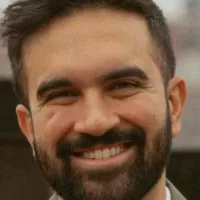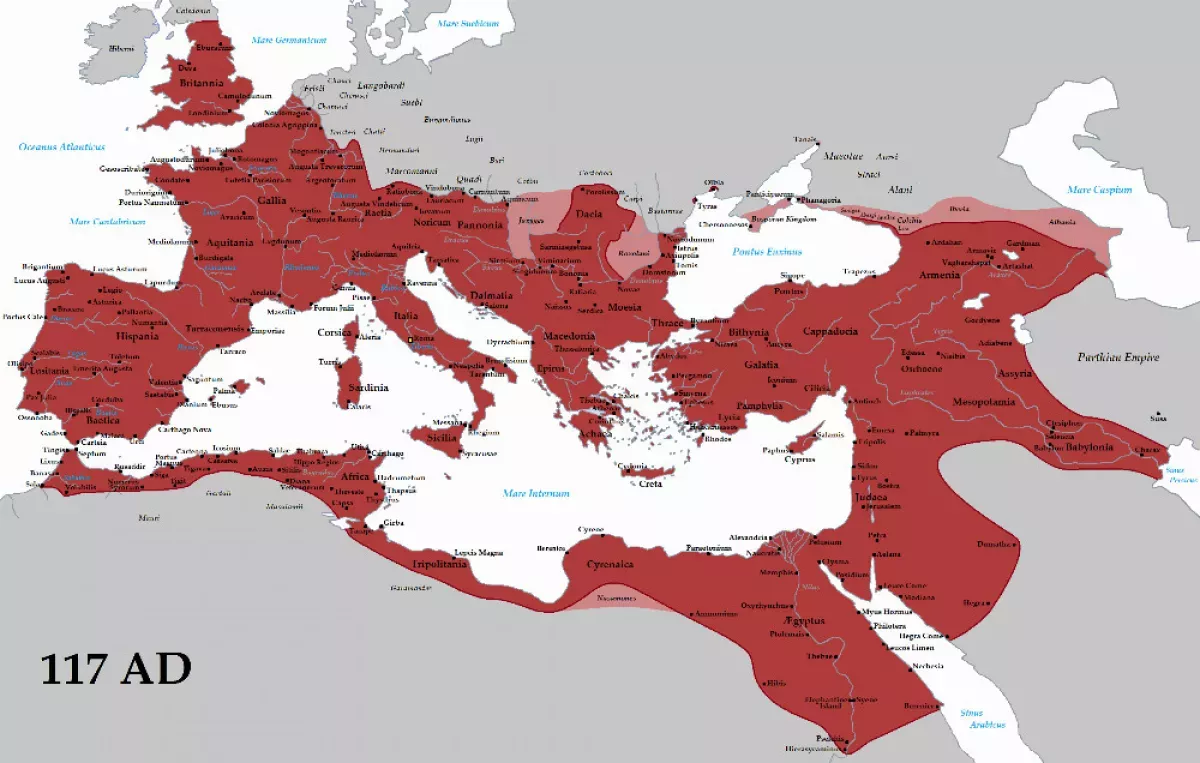An empire is a political structure consisting of a dominant center exerting control over subordinate peripheries. The term originates from the Roman 'imperium.' While often associated with a ruler holding the title of emperor or empress, not all states with extensive territories qualify as empires. Key characteristics include differentiated rights and governance for various populations within the empire. The definition and recognition of what constitutes an empire have varied throughout history, as not all self-proclaimed empires have been universally accepted.
1900: Empires enter "play-offs"
An Historian specializing on the world history applied Kemp's game analogy to modern empires. According to it, in 1900 empires ended their "regular season" and entered "play-offs."
1900: Imperial Expansion
Around 1900, imperial expansion filled the world, with observers like Frederick Turner, Halford Mackinder, and Max Weber emphasizing the significance of the event.
1900: Closure of the "imperial belt"
Around 1900, the two events marked the closure of the "imperial belt"--belt of great empires stretching from west to east.
1900: Empires Ruling the World
Around 1900, the world political map was completed, with empires ruling over four-fifths of the world, according to contemporary observer Max Weber.
1900: Edward Carr on the End of Overseas Imperial Expansion
Since 1900, wars are between "imperial powers" because in the nineteenth century, imperialist wars were waged against "primitive" peoples and it was silly for European countries to fight against one another when they could still maintain social cohesion by continuous expansion in Asia and Africa.
1904: Global Closure and Technological Advances
In 1904, Mackinder outlined the global closure and Henry Brooks Adams the law of acceleration in technological progress and production, contributing to a "clash of empires."
1907: The Hague Conference as Prelude to World War I
In 1907, The Hague Conference was seen as a prelude to World War I, indicating the rising tensions and potential for conflict among nations.
1912: Collapse of the Great Qing Empire
In 1912, the Great Qing Empire of China collapsed as a result of the Xinhai Revolution. This empire, which existed from 1644, laid the foundation for the modern territorial claims of both the People's Republic of China and the Republic of China.
1914: British Empire at its peak
By 1914, the British Empire became the largest empire in world history, encompassing one quarter of the world's land area and one fifth of its population.
1914: Scramble for Africa concludes
By 1914, the Scramble for Africa (1870-1914) concluded with European empires dividing almost the entire continent among themselves.
1918: Dissolution and Transformation of Empires
In 1918, significant geopolitical shifts occurred, including the reduction of the German colonial empire with Weimar Germany, the fall of the Ottoman Empire, the dissolution of the Austro-Hungarian Empire, and the transformation of the Russian Empire.
1918: Dissolution of Austria-Hungary
The Empire of Austria-Hungary, which existed from 1867 to 1918 and claimed to inherit the imperium of Central and Western Europe, dissolved in 1918.
1918: End of the Ottoman Empire
The Ottoman Empire, which had dominated the eastern Mediterranean and threatened Europe, existed from approximately 1300 until 1918.
1919: Aftermath of Empire Dissolutions
In 1919, following the end of World War I, the implications of the dissolution of empires such as the German colonial empire continued to unfold as new political structures were established.
1921: The Washington Conference as Prelude to Future Wars
In 1921, The Washington Conference was viewed as a prelude to future wars, suggesting ongoing global tensions and potential for conflict.
1922: Predictions of Contest for Global Heritage
From 1922, it was predicted that the contest "for the heritage of the whole world" would culminate within two generations, with the strongest race seizing global management.
1922: Spengler's Prediction of the Imperial Age
In 1922, Oswald Spengler's The Decline of the West predicted the triumph of the strongest race in the fight for the whole world within "two generations" and of "Caesarism" over democracy "within a century."
1923: The End of the Ottoman Empire
In 1923, the Ottoman Empire dissolved, marking the end of an era and leading to significant geopolitical changes in the Middle East.
1926: Publication of Volk ohne Raum
In 1926, Volk ohne Raum (A People without Space) by Hans Grimm sold nearly 700,000 copies, reflecting the anxious mood of the era.
January 18, 1942: Axis Powers Agreement
On January 18, 1942, the Axis powers agreed to divide up Eurasia along the 70th meridian east, envisioning "two large imperial blocs."
1943: Richard von Coudenhove-Kalergi Envisions American Air Superiority
In 1943, Richard von Coudenhove-Kalergi envisioned that after the War, America is bound to take over the command of the skies and that America's air role is the only alternative to intercontinental wars.
1944: James Burnham's Prediction of a World Empire
In 1944, James Burnham's secret study for the Office of Strategic Services concluded that the victory of either superpower would result in a universal empire. He said that atomic weapons made a world empire inevitable, necessary to establish a monopoly on such weapons to guarantee the survival of civilization.
July 1945: Start of US Occupation in Berlin
The US occupation in Berlin began in July 1945 and lasted nearly 50 years.
August 6, 1945: Atomic Bombing of Hiroshima
On August 6, 1945, the first atomic bomb exploded over Hiroshima, but this new physical fact did not change the political situation, making the world empire inevitable.
1945: The United States settles for "form of empire—a Pax Americana with formal commitments to Europe"
According to a much debated thesis, the United States became "empire by invitation." In 1945 The period discussed in the thesis (1945–1952) ended precisely the year Toynbee theorized on "some future architect of a Pax Ecumenica."
1945: Georgy Fedotov on the Future of Empires
In 1945, Georgy Fedotov predicted all empires are stages toward a single universal empire, raising the question of who will build it and on what foundations, suggesting "Pax Atlantica" as the best possible outcome.
1945: Ludwig Dehio on Overseas Expansion and the European States System
In 1945, Ludwig Dehio explained that overseas expansion contributed to the durability of the European states system. According to him, overseas expansion and the system of states were born simultaneously and the vitality that burst the bounds of the Western world also destroyed its unity.
1945: Ludwig Dehio on Global Unification
In 1945, historian Ludwig Dehio predicted global unification due to the circumscription of the global system. He noted that the system, being global, can neither expand nor be subject to external intrusion like the European states system had been for centuries.
1945: Anatomy of Peace and World Federalism
In 1945, the book Anatomy of Peace proposed world federalism, warning that without it, the world was on the verge of a period of empire building.
1946: Atomic Scientists and the Concept of the Grand Inquisitor
In 1946, after the accomplishment of science, Atomic Scientists repeated the concept of the Grand Inquisitor.
1950: Nomination of Reves for Nobel Peace Prize
In 1950, Reves, the author of Anatomy of Peace, was nominated for the Nobel Peace Prize, recognizing his contributions to discussions on world order and peace.
1951: Hans Morgenthau on World War III Outcome
In 1951, Hans Morgenthau concluded that the "best" outcome of World War III would be the establishment of a world empire.
1951: NSC 68 and the "Knock-Out Blow" Doctrine
In 1951, US Secretary of State John Foster Dulles announced the "knock-out blow" doctrine. The National Security Council Report 68 (NSC 68), approved by President Harry Truman, used terms like "powerful," "overwhelming," and "crippling" in reference to a potential "blow."
1951: Eisenhower's Perspective on US Role in Europe
In 1951, before becoming president, Dwight Eisenhower expressed that the US could not be a modern Rome guarding far frontiers. He emphasized the need to assist West European peoples instead.
1952: The United States settles for "form of empire—a Pax Americana with formal commitments to Europe"
According to a much debated thesis, the United States became "empire by invitation." In 1952 The period discussed in the thesis (1945–1952) ended precisely the year Toynbee theorized on "some future architect of a Pax Ecumenica."
1959: Eisenhower on US Occupation in Berlin
In 1959, Eisenhower assured Soviet first secretary Nikita Khrushchev that the US did not contemplate a 50-year occupation in Berlin.
1967: Comparative Research on Universal Empires
In 1967, Robert Wesson published a research on universal empires searching how these organizations, horrible in his view, repeatedly occurred in history.
1976: Central African Empire
From 1976 to 1979, the Central African Empire existed, though it was not universally accepted as a true empire by contemporaries and historians.
1979: End of Central African Empire
From 1976 to 1979, the Central African Empire existed, though it was not universally accepted as a true empire by contemporaries and historians.
1979: Transformation of the Central African Empire
In 1979, the Central African Empire transitioned into a republic while maintaining its existing borders.
1986: Paul Kennedy predicts US "imperial overstretch"
In 1986, historian Paul Kennedy predicted the imminent US "imperial overstretch."
1988: Susan Strange on the Future of the American Empire
In her 1988 article, "The Future of the American Empire," Susan Strange emphasized that the most persistent empires were those which best managed to integrate the ruling core and the peripheral allies, finding it unlikely US "imperial overstretch", stressing the fact that the peripheral allies have been successfully recruited into the American Empire.
1989: Kemp publishes game theory on imperial evolution
Egyptologist Barry Kemp published his game theory in 1989, outlining a "basic model" of imperial evolution, just before modern empires completed this process.
1989: Transformation of the Russian Empire
In 1989, the Russian Empire underwent significant transformation and again in 1989-91.
1989: US Wields a New Kind of World Empire
Since 1989, the United States has been described as wielding a "new kind of world empire" that overshadows former colonial empires, raising ethical concerns.
1989: Beginning of the Collapse of the Soviet Empire
The Soviet Empire began to collapse in 1989 and continued through 1991.
1990: US Emerges as the Only World Empire
After 1990, following the end of the Cold War, the United States became recognized by some as "the only world empire."
1991: Final Dissolution of the Soviet Union
The Soviet Empire began to collapse in 1989 and continued through 1991.
1993: Formation of the European Union
In 1993, the European Union was formally established as a polity, leading to concerns about its potential for imperial behavior by coercing neighboring countries.
September 1994: End of US Occupation in Berlin
The US occupation in Berlin ended in September 1994, lasting 10 months short of 50 years. The US troops left eastward and East European states extended the invitation, confirming the theory of the "empire by invitation."
1999: Portugal Returns Macau to China
In 1999, the Portuguese territory of Macau reverted to China, becoming a Special Administrative Region with an autonomous system of government.
2000: Robert Wesson's expectation of Global Scale Empire
In 1967, Robert Wesson published a research on universal empires expecting the next to occur on the global scale before the year 2000.
2000: Graphs of Empire Size and Population
In 2000, Walter Scheidel demonstrated the population of the largest empire and three largest empires as a share of world population from 700 BC. Taagepera showed the largest empire in total area and share of world population for 3000 BC.
2002: Paul Kennedy acknowledges the present world system
In 2002, historian Paul Kennedy acknowledged the present world system.
2002: US Commands Reflect Roman Imperia
Since 2002, the world is divided between US "commands," reflecting ancient Roman imperia.
2003: Invasion of Iraq and US Foreign Policy
In 2003, the US-led invasion of Iraq was underway, sparking debate about American imperialism and its role in dominating foreign peoples and states.
2007: Research on Pre-Modern Civilizations and Imperial Order
In 2007, a research project on pre-modern civilizations concluded that the balance of power is inherently unstable and tends to break down in favor of imperial order.
2013: Marchetti and Ausubel's Prediction of a Global Empire
In 2013, Marchetti and Ausubel estimated that the global empire is to rise within "a couple more generations."
2021: Oxford World History of Empire
According to the 2021 Oxford World History of Empire, theories of empire were still Eurocentric and reflected the brief period of European dominance. It suggested widening the perspective and situating the "Age of Imperialism" within a proper world history of empires.
June 2022: Putin's Association with Peter the Great
In June 2022, Vladimir Putin compared himself to Peter the Great, associating their historical quests to reclaim Russian lands, implying imperial ambitions in Ukraine.
2022: Russian Invasion of Ukraine
In 2022, the Russian invasion of Ukraine led to interpretations of Putin's policy as an attempt to revive the tsarist Russian Empire.
2022: End of Spengler's Century
In 2022, the Spenglerian century ended short of global "Caesarism," although two years prior, Donald Trump had been advised to cross the Rubicon.
Mentioned in this timeline

Vladimir Vladimirovich Putin is a Russian politician and former intelligence...
Ukraine is a country in Eastern Europe the second-largest on...
Hong Kong is a densely populated special administrative region of...
Germany officially the Federal Republic of Germany is a nation...

Peter I also known as Peter the Great was Tsar...
China officially the People's Republic of China is an East...
Trending
12 minutes ago Kyle Anderson's Injury Status: Won't Play Friday, Doubtful Monday, Iffy Wednesday
13 minutes ago Sonny Styles impresses NFL teams: Interview with Panthers and Giants interest.

23 hours ago Governor Whitmer's final State of the State address focuses on Michigan's future.

1 hour ago David Bailey shines as top defensive prospect at NFL Combine, impressing scouts.

1 hour ago Mamdani and Trump Discuss Housing at White House Meeting; Pitches Investments
2 hours ago Rocket Lab's Q4 Beat: Launch Contracts, Solar Arrays, and Acquisition Revealed.
Popular

Jesse Jackson is an American civil rights activist politician and...

Susan Rice is an American diplomat and public official prominent...

Barack Obama the th U S President - was the...

XXXTentacion born Jahseh Dwayne Ricardo Onfroy was a controversial yet...

Michael Joseph Jackson the King of Pop was a highly...

Kashyap Pramod Patel is an American lawyer who became the...



